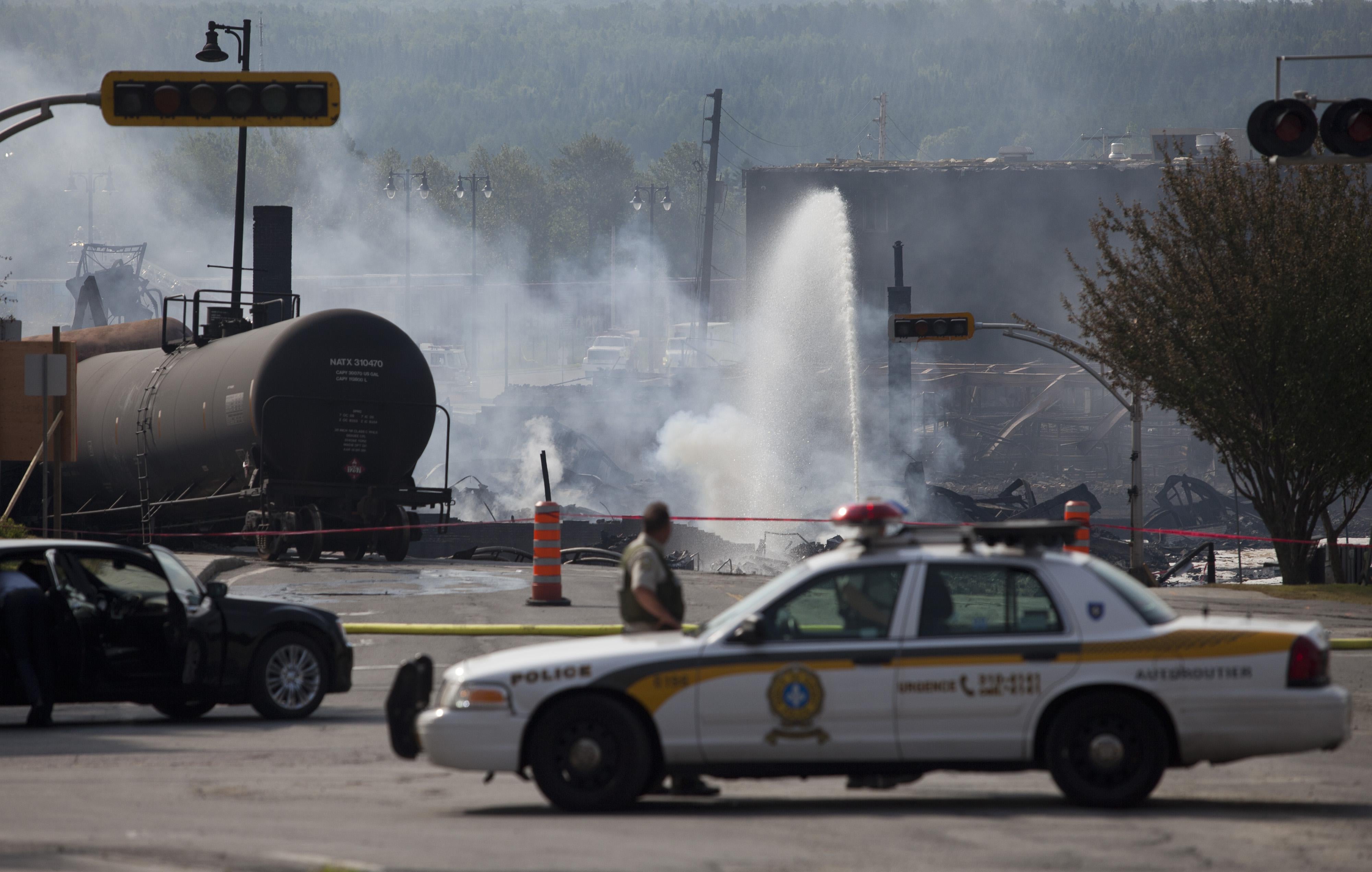Oil tanker cars are still burning Sunday after a train carrying crude oil derailed and exploded in the eastern Quebec town of Lac-Mégantic on Saturday, about 10 miles west of the Maine border. The blasts and ensuing fires have forced as many as 2,000 people to evacuate and prevented responders from reaching the hardest-hit areas. Police confirmed the deaths of five people along with dozens still missing on Sunday. Those numbers will likely fluctuate as rescue efforts continue.
Officials are still investigating the accident, though the CBC reports the derailment may have been caused by a runaway train. The train was parked uphill of the town center, but then sped downhill and derailed:
The president and CEO of Rail World Inc., the parent company of Montreal, Maine & Atlantic Railway, said the train was parked uphill of Lac-Mégantic before the incident.
“If brakes aren’t properly applied on a train, it’s going to run away,” Edward Burkhardt told The Canadian Press. “But we think the brakes were properly applied on this train.”
The accident may renew concerns about transporting oil by rail. The AP provides some background:
Because of limited pipeline capacity in North Dakota’s Bakken region and in Canada, oil producers are using railroads to transport much of the oil to refineries on the East, Gulf and West coasts, as well as inland. [Canadian Prime Minister Stephen] Harper has called railroad transit “far more environmentally challenging” while trying to persuade the Obama administration to approve the controversial Keystone XL pipeline from Canada to the Gulf Coast.
